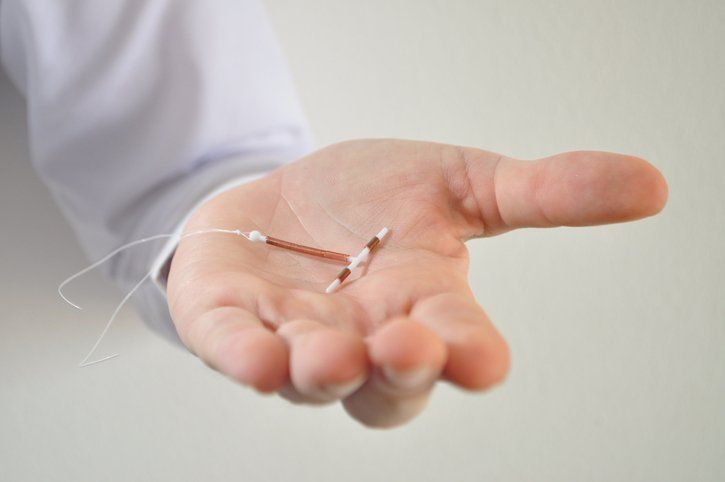Why Are Your Periods Irregular?
- By Admin
- •
- 31 Mar, 2020
- •

Do you have irregular periods? The typical menstrual cycle is 28 days with bleeding that lasts from 4 to 8 days. If your period is shorter, longer, or spottier than the average, take a look at the most common culprits behind your not-so-regular cycle and what you can do about them.
Are You in Perimenopause?
Before you brush off this explanation based on your age, perimenopause can start as early as your mid-30s. Perimenopause is the time before menopause and can start anywhere from a woman's 30s to her 50s. Women in this transitional stage still have their period - but the frequency, duration, and symptoms of menstruation may change.
Hormonal changes affect ovulation and will change the perimenopausal woman's cycle. Periods during perimenopause may be shorter, longer, lighter, heavier, or unpredictable. You may not get a period one month and have what seems like two the next. Even though you may not menstruate every month, menopause won't start until you've gone a full 12 months in a row without a period.
If you think perimenopause is the cause of your irregular periods:
- Contact your gynecologist. Even though perimenopause is a common cause for irregular cycles in women over 40, it isn't the only possibility. Before you assume perimenopause is at fault, get a doctor's diagnosis.
- Track your periods. Are your periods really different than before? Track your cycle on a calendar or in a menstruation app.
- Note other symptoms. While you may not experience every symptom of perimenopause, other signs include hot flashes, sleep disturbances, mood changes, cholesterol level changes, bone loss, sexual changes, bladder issues, and decreased fertility.
What can you do about perimenopause? If the doctor determines you are in perimenopause, you have several options (such as hormone therapy or antidepressants) to discuss.
Do You Have Uterine Fibroids?
These noncancerous growths can suddenly appear during a woman's childbearing years. Fibroids can range in size from almost imperceptible to large enough to change the entire shape of the uterus. Even though they have the appearance of tumors, fibroids rarely indicate cancer of the uterus.
Unlike perimenopause-related cycle changes, women with fibroids typically won't experience shorter, lighter, or missed periods. Instead, fibroids may cause:
- Longer periods. Your period may last more than the typical seven days. This can result in less time between periods or longer, but fewer, periods in a year.
- Heavier periods. Women with fibroids often experience heavier period bleeding.
- Increased pain or pressure. While many women experience little to no discomfort, fibroids can increase menstrual cramping or cause pelvic pain.
If you're not sure whether fibroids are the cause of your irregular periods, contact your doctor. The doctor will perform a pelvic exam and an ultrasound (or other imaging tests) to diagnose this issue. Some small, symptomless fibroids require no treatment. Larger or painful fibroid treatment may include hormonal therapy medications or IUD, MRI-guided surgery, ablation, myomectomy, or surgery.
Do You Have Endometriosis?
Endometriosis is an often painful condition where the uterine lining (endometrium) grows outside of the uterus. While it can (rarely) spread beyond the pelvic organs, endometriosis typically affects the pelvic lining, fallopian tubes, and ovaries.
Along with pain during intercourse, fatigue, and infertility, endometriosis can cause:
- Longer periods. Endometriosis can cause a thickening of the uterine lining. The thicker lining takes longer to shed and may increase the overall length of each period.
- Irregular periods. Longer periods may throw off the normal 28-day cycle. This leads to shorter cycles with less time in between periods.
- Menstrual or ovulation pain. Women with this condition may experience increased menstrual cramping or pain with ovulation.
Like perimenopause and fibroids, endometriosis requires a doctor's diagnosis. If the doctor does diagnose you with endometriosis, treatment options may include pain medications, hormone therapy, or surgery.
Are your irregular periods getting in the way of your everyday life? Contact the office of Jack G. Faup M.D. for more information.



